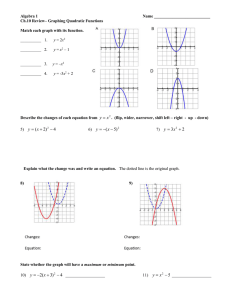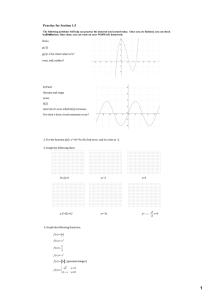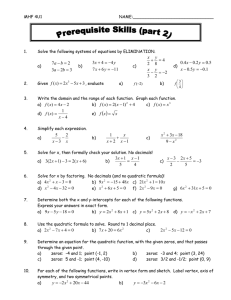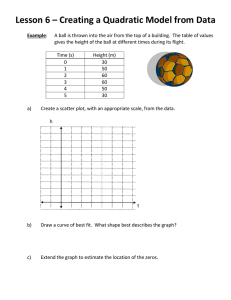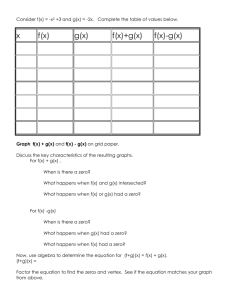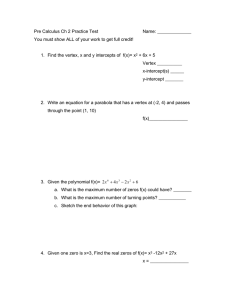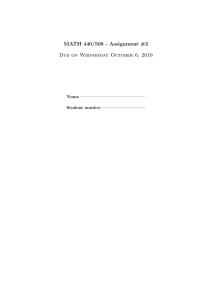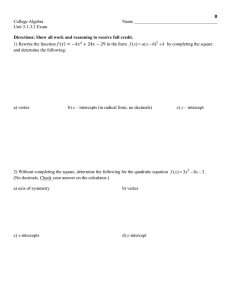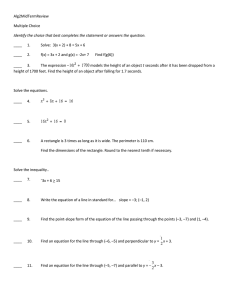Linear Demand & Cost: Quadratic Revenue & Profit Example
advertisement
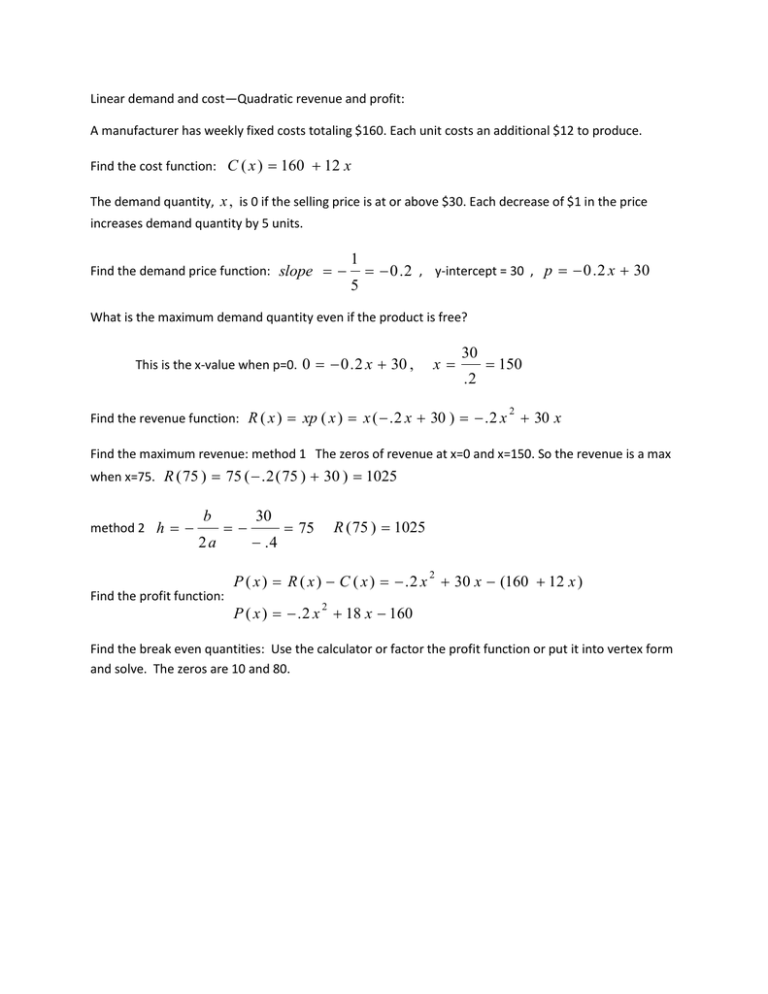
Linear demand and cost—Quadratic revenue and profit: A manufacturer has weekly fixed costs totaling $160. Each unit costs an additional $12 to produce. Find the cost function: C ( x ) 160 12 x The demand quantity, x , is 0 if the selling price is at or above $30. Each decrease of $1 in the price increases demand quantity by 5 units. Find the demand price function: slope 1 0 . 2 , y-intercept = 30 , p 0 . 2 x 30 5 What is the maximum demand quantity even if the product is free? This is the x-value when p=0. 0 0 . 2 x 30 , x 30 150 .2 Find the revenue function: R ( x ) xp ( x ) x ( . 2 x 30 ) . 2 x 30 x 2 Find the maximum revenue: method 1 The zeros of revenue at x=0 and x=150. So the revenue is a max when x=75. R ( 75 ) 75 ( . 2 ( 75 ) 30 ) 1025 method 2 h b 2a 30 .4 R ( 75 ) 1025 75 P ( x ) R ( x ) C ( x ) . 2 x 30 x (160 12 x ) 2 Find the profit function: P ( x ) . 2 x 18 x 160 2 Find the break even quantities: Use the calculator or factor the profit function or put it into vertex form and solve. The zeros are 10 and 80.

